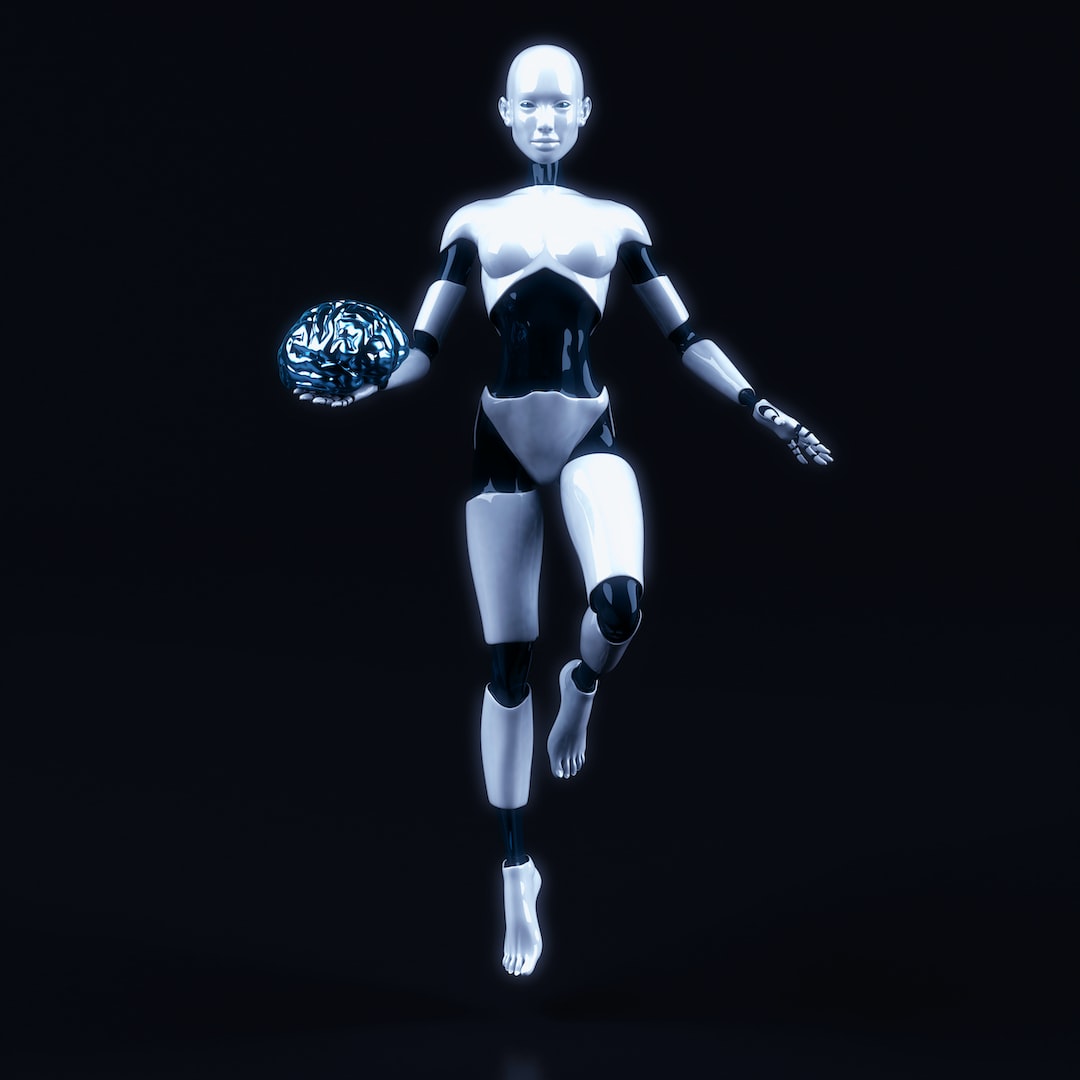
Tales of an Operator
est 1982 | SEO | Digital Marketing | Project Management | Collaboration | Positioning | Context

SEO, AI
How Machine Learning and AI Algorithms are Changing SEO
28 May 2023
In today's digital age, Machine Learning (ML) and Artificial Intelligence (AI) have revolutionized the way businesses operate. Search Engine Optimization (SEO) is no exception to this, as ML and AI algorithms are rapidly changing the SEO landscape. With the increasing importance of SEO for businesses, it's crucial to understand how these technologies are affecting SEO and what strategies can be used to leverage them for better results.
Introduction
In this article, we'll discuss how ML and AI algorithms are changing SEO, and what this means for businesses. We'll explore how search engines are using ML and AI to deliver better search results, how businesses can use these technologies to optimize their websites, and what trends we can expect in the future.
The Evolution of SEO
Over the years, SEO has evolved from simply stuffing keywords into a website's content to a complex and nuanced practice that involves many factors. Google's algorithm updates, such as Hummingbird, Panda, and Penguin, have made SEO more sophisticated and have forced businesses to adopt more comprehensive and strategic SEO practices.
However, these updates have also made it more challenging to rank high on search engines. For businesses, this means that they must adopt more sophisticated SEO strategies, such as incorporating ML and AI algorithms into their optimization efforts.
Machine Learning and SEO
Machine Learning is a subset of AI that involves using algorithms to learn from data and make predictions. In the context of SEO, ML algorithms are used by search engines to analyze website content and determine its relevance to a particular search query.
Google's RankBrain is an example of an ML algorithm that is used to understand and interpret search queries, match them with relevant search results, and deliver personalized search results. This means that businesses must optimize their website content for both the search engine's algorithms and the user's intent.
AI and SEO
Artificial Intelligence is a broader concept that involves developing machines that can perform tasks that typically require human intelligence, such as understanding natural language and recognizing images. In the context of SEO, AI algorithms are used to analyze user behavior and deliver personalized search results.
Google's AI-powered algorithm, BERT, is designed to understand the context of search queries and deliver more accurate and relevant results. This means that businesses must create content that is not only relevant to a particular search query but also provides value to the user.
The Future of SEO
As ML and AI algorithms continue to evolve, the future of SEO will be characterized by more sophisticated optimization strategies that leverage these technologies. For businesses, this means adopting a comprehensive approach to SEO that incorporates ML and AI algorithms, as well as other optimization strategies such as link building and content marketing.
In addition, voice search and natural language processing will play an increasingly important role in SEO. Businesses must optimize their website content for natural language queries and create content that is conversational in tone.
Conclusion
Machine Learning and AI algorithms are changing the SEO landscape, and businesses must adopt more sophisticated SEO strategies to remain competitive. By leveraging these technologies and optimizing their website content for both search engine algorithms and user intent, businesses can improve their search engine rankings and drive more traffic to their websites.
FAQs
What is Machine Learning?
Machine Learning is a subset of AI that involves using algorithms to learn from data and make predictions.
What is Artificial Intelligence?
Artificial Intelligence involves developing machines that can perform tasks that typically require human intelligence, such as understanding natural language and recognizing images.
What is Google's RankBrain?
Google's RankBrain is an ML algorithm that is used to understand and interpret search queries, match them with relevant search results, and deliver personalized search results.
What is Google's BERT?
Google's BERT is an AI-powered algorithm that is designed to understand the context of search queries and deliver more accurate and relevant results.
How can businesses leverage ML and AI algorithms for SEO?
Businesses can leverage ML and AI algorithms for SEO by optimizing their website content for both search engine algorithms and user intent. They can use tools such as Google Analytics and Google Search Console to analyze user behavior and develop SEO strategies that deliver personalized search results.
Access All of My Amazing Prompts:
Share this post on:
RECENT POST
-
26 May 2023
CATEGORY
-
SEO
-
ONLINE ADS
-
MARKETPLACE POSITIONING
-
PROJECT MANAGEMENT
-
FRAMEWORKS
-
TEAM COLLABORATION
-
KANBAN
-
IMPLEMENTING AGILE IN TEAMS
-
MARKETING STRATEGIES
-
CASE STUDIES: EMAIL
-
CASE STUDIES: SEO
-
CASE STUDIES: SOCIAL MEDIA
-
CASE STUDIES: ONLINE ADS
-
CASE STUDIES: ONLINE SCHEDULING
-
-

Garrett Vatcher
Principal Consultant | Founder
Experience matters when it comes to SEO success. With over $1B in attributed revenue and 10,000+ online scheduled appointments, Garrett Vatcher, Principal Consultant at SEO Marketing Consultant, has the expertise to help your business thrive."
FEATURED ARTICLE
18 May 2023
17 May 2023
Writing Killer Seo Content With Chatgpt
Chatgpt And How It Can Help With Seo
Boost Seo With Chatgpt Chatbot
Game With Semantic Seo And Chatgpt
Writing Killer Seo Content With Chatgpt
Chatgpt Local Seo Tools
Seo With Chatgpt Poweful Tools
Using Automated Seo For Your Website
Why Mobile Optimization Is Essential Seo
How Content Marketing And Seo Works
Chatgpt The Next Generation Language
The Future Of Ai Technology Basics
How Ai Changes The Way We Learn
The Lates Ai Research And Breakthroughs
The Ultimate Seo Checklist For 2023
The Importance Of Title Tags For Seo
Complete Guide To Link Building For Seo
Optimize Your Product For Ecommerce Seo
Machine Learning A Beginners Guide
Chatgpt Competitor Analysis Tools
Website For Voice Search With Chatgpt
Revolutionizing Seo Boosting Rangkings
How Machine Learning And Ai Algorithms
How Website Speed Impacts Your Seo
Tips On Boosting Organic Search Traffic
What Makes Chatgpt Different From Gpt3
How To Built Chatbot With Chatgpt
The Evolution Of Ai Technology
What Is Seo And How Does It Works
Beginners Guide To Google Analytics Seo
How To Write Meta Descriptions For Seo
How To Boost Seo With Guest Blogging
Power Of User Generated Ecommerce Seo
The Ai Technology Behind Voice Assistant
Seo Potential Chatgpt Content
Seo Chatgpt Backlink Analysis Tools
Ai Tools To Help You Rank Higher
Role Of Nlp In Optimizing Seo Content
Top Seo Metrics To Track Performance
Importance Of Backlink Analysis For Seo
What Is A Language Model
Top 10 Ai Applications For Your Business
Ai Finance Improving Accuracy Efficiency
Seo For Beginners A Comprehensive Guide
The Top Keyword Research Tools For Seo
Ultimate Guide To Header Tags For Seo
Ultimate Guide To Local Keyword Seo
Mobile Friendly Websites For Seo
Chatgpt And How It Can Help With Seo
Writing Killer Seo Content With Chatgpt
Chatgpt And How It Can Help With Seo
Boost Seo With Chatgpt Chatbot
Game With Semantic Seo And Chatgpt
Writing Killer Seo Content With Chatgpt
Chatgpt Local Seo Tools
Seo With Chatgpt Poweful Tools
Using Automated Seo For Your Website
Why Mobile Optimization Is Essential Seo
How Content Marketing And Seo Works
Chatgpt The Next Generation Language
The Future Of Ai Technology Basics
How Ai Changes The Way We Learn
The Lates Ai Research And Breakthroughs
The Ultimate Seo Checklist For 2023
The Importance Of Title Tags For Seo
Complete Guide To Link Building For Seo
Optimize Your Product For Ecommerce Seo
Machine Learning A Beginners Guide
Chatgpt Competitor Analysis Tools
Website For Voice Search With Chatgpt
Revolutionizing Seo Boosting Rangkings
How Machine Learning And Ai Algorithms
How Website Speed Impacts Your Seo
Tips On Boosting Organic Search Traffic
What Makes Chatgpt Different From Gpt3
How To Built Chatbot With Chatgpt
The Evolution Of Ai Technology
What Is Seo And How Does It Works
Beginners Guide To Google Analytics Seo
How To Write Meta Descriptions For Seo
How To Boost Seo With Guest Blogging
Power Of User Generated Ecommerce Seo
The Ai Technology Behind Voice Assistant
Seo Potential Chatgpt Content
Seo Chatgpt Backlink Analysis Tools
Ai Tools To Help You Rank Higher
Role Of Nlp In Optimizing Seo Content
Top Seo Metrics To Track Performance
Importance Of Backlink Analysis For Seo
What Is A Language Model
Top 10 Ai Applications For Your Business
Ai Finance Improving Accuracy Efficiency
Seo For Beginners A Comprehensive Guide
The Top Keyword Research Tools For Seo
Ultimate Guide To Header Tags For Seo
Ultimate Guide To Local Keyword Seo
Mobile Friendly Websites For Seo



